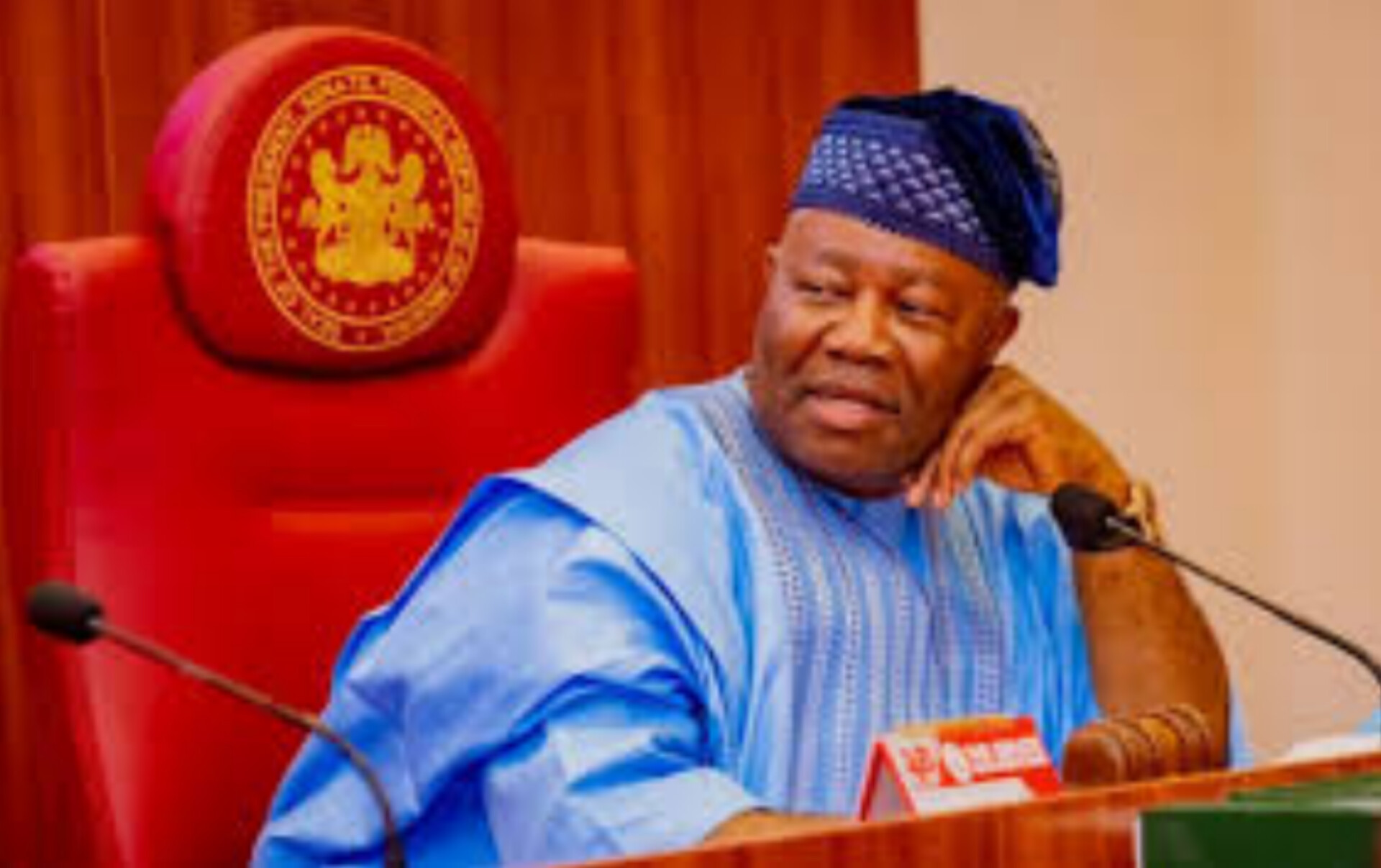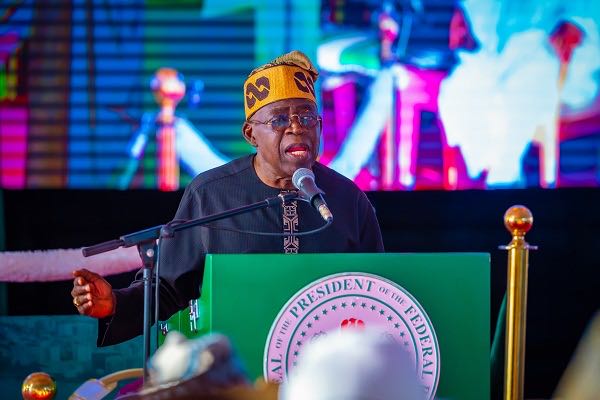For his lackluster leadership in the handlkng of the affairs of the senate, the National Democratic Coalition (NADECO) United States of America (USA) has asked the President of the Senate, Senator Godswill Akpabio to resign
The Executive Director of NADECO USA, Mr Lloyd Ukwu made the call in a statement released to newsmen Tuesday in Abuja.
Ugwu also urged Senators to commence impeachment proceedings without further delay against Akpabio for making the upper chamber a laughing stock through naivety, immaturity and eagerness to please the executive, irrespective of the repercussions of his actions on the Senate as an institution and democratic governance in Nigeria.

He noted that Akpabio who was planted as Senate President by President Bola Ahmed Tinubu has completely subjugated his colleagues under the executive and eroded the independence and integrity of the legislature in Nigeria.
He accused Akpabio of showing absolute disdain for the Standing Rules of the Senate as regards the order of proceedings, vibrant debates during plenary and thorough scrutiny of executive communications and Bills.
According to the pro-democracy group, Akpabio often resume plenaries late and unduly extend the time of sitting, a situation which is tiresome to Senators but which they are forced to stomach.
He noted that in the order paper for the day, Akpabio’s first assignment is to take the opening prayers, call for approval of votes and proceedings of the previous sitting, administer oaths if any and make announcement (if any) before calling for petitions.
Ukwu said: “However, Akpabio is fond of keeping communications from the President which are supposed to be read during announcement time till the end of plenary like he recently did when he announced the last three ministerial nominees by the President towards the tail end of plenary.
“Only recently, the Chief Whip of the Senate, Senator Mohammed Ali Ndume (APC – Borno South) and Senator Mohammed Ogoshi Onawo (SDP – Nasarawa South) openly accused Akpabio of not giving senators adequate opportunity to interrogate and scrutinize bills, especially money bills, and warned that history would judge him for approving executive requests and passing important legislations posthaste.
“Akpabio has equally showed lack of empathy for poor and suffering Nigerian masses when he recently turned a ‘let Nigerians breathe’ comment by a Senator into a pun which attracted a mocking laughter from his colleagues during plenary.
“For fear of being impeached, he recently caused an amendment to be made to the Senate Standing Rules to the effect that no first term Senator is qualified to vie for the position of presiding officer, a move which clearly violates relevant sections of the constitution which confers powers on Senators to freely choose presiding officers at their first sitting irrespective of ranking.
“He also rallies Senators to pass bills they have not seen or may never see the details. Above all, he treats and relates with Senators with disrespect like errand boys even as he continues to wear his former toga as the executive governor and dictator in Akwa Ibom State Government House, Uyo.”
NADECO USA insisted that Akpabio who earlier contested the presidential primary election of the APC in 2022 is not fit to be Senate President of Nigeria at this material time.
He insisted that should Akpabio fail to resign or Senators fail to impeach him, NADECO USA would have no option than to mobilize its members in USA and Nigerians in diaspora for a mass action to ensure that he vacates office.
He said: “NADECO USA has received several petitions against Akpabio and his subservient leadership style as President of the 10th Senate.
“Therefore we are ready to take necessary actions to ensure that the US parliament and other parliaments across the world would henceforth not consider the Nigerian Senate under Akpabio as a serious and responsible institution.
“We will also use our reach, influence and powers to lobby to ensure that the 10th Senate under Akpabio is not accorded due recognition within the international community.
“It is regrettable that since assumption of office, Akpabio has converted the National Assembly into an annex of the Presidential Villa.
“He has connived with the executive to approve loans and other adverse requests without following due process or allowing Senators to adequately make germane input through robust debate.”



